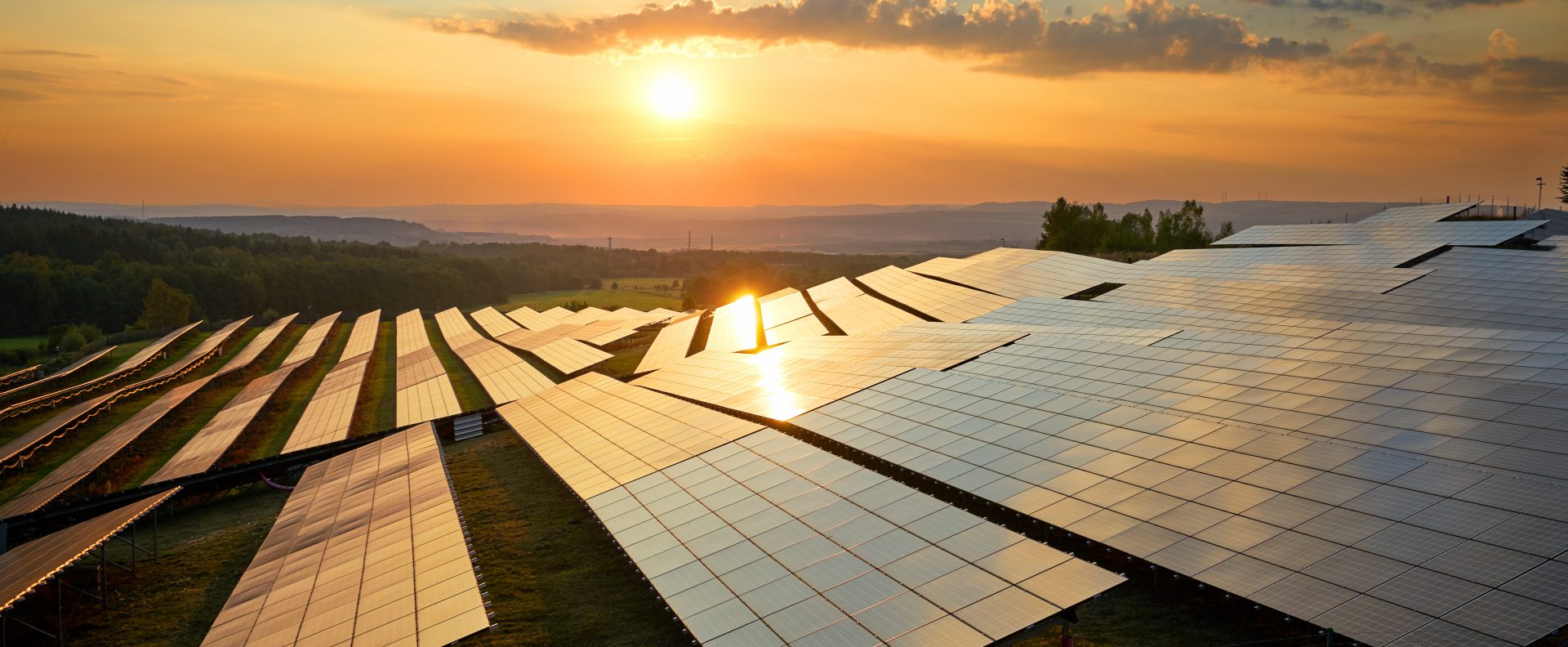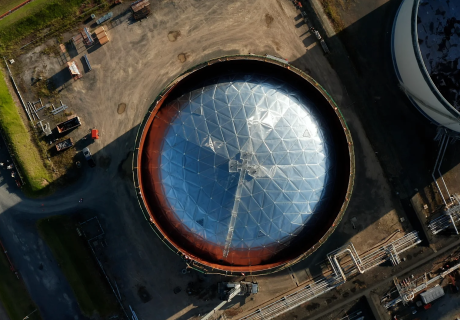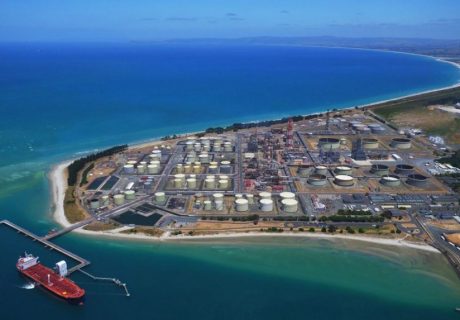The Marsden Point import terminal is the core of our business; however, there are exciting opportunities for us to diversify what we do.
We have a long-term resource consent to operate at Marsden Point, with deep harbour and jetty access, industrial water, electricity and gas connections, and proximity to the largest population base in New Zealand in a low-seismic risk region.
Channel Infrastructure is supporting New Zealand’s decarbonisation ambitions, by utilising our world-class assets, the underutilised Marsden Point site, and role in providing resilience in the supply chain.
We remain focused on exciting future growth opportunities at our Marsden Point site and beyond – from biofuels, to solar power, hydrogen, and more.
Additional fuel storage supporting fuel security
In addition to the 280 million litres of storage capacity at Marsden Point , we see great opportunity to support the New Zealand Government’s plans for increased resiliency in the New Zealand supply chain.
We have approximately 400 million litres of unused tank capacity at Marsden Point, which could be repurposed if it were required, to provide additional fuel storage in New Zealand, offering greater resiliency in our supply chain.
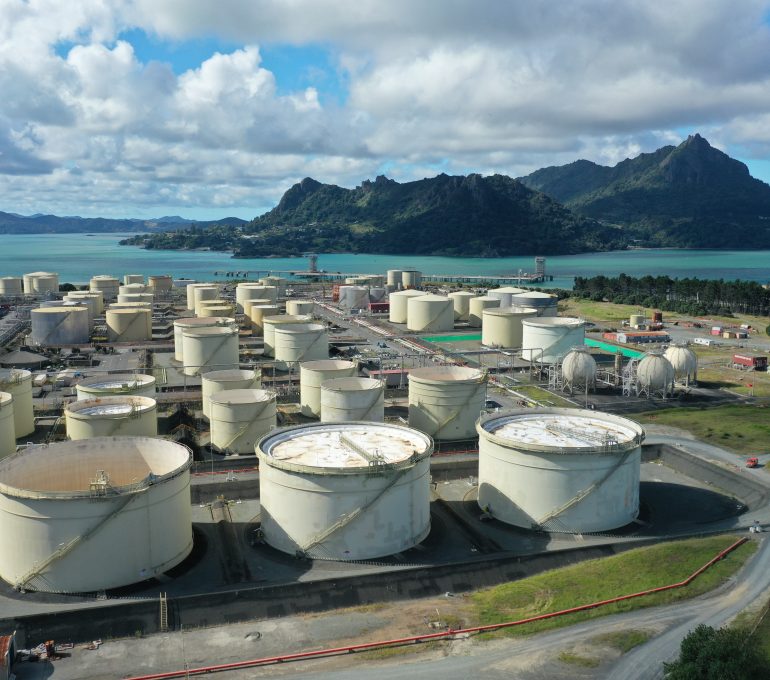
Renewable electricity supply for Marsden Point
Electricity costs make up one third of the Marsden Point terminal’s operating costs. We have now locked in a new long-term renewable supply contract for our site, which begins from 2024.
As a result of this new certified renewable contract, we will be meeting all of our electricity needs from renewable sources. For Channel, that means we will have largely eliminated its direct emissions from 2024 – some six years ahead of the company’s target.
Our fully consented solar farm project, Maranga Ra, remains a significant development opportunity, and – while its peak capacity is now significantly larger that the terminal’s energy requirements – we will continue to evaluate opportunities for this project, alongside other Marsden Point site repurposing opportunities.
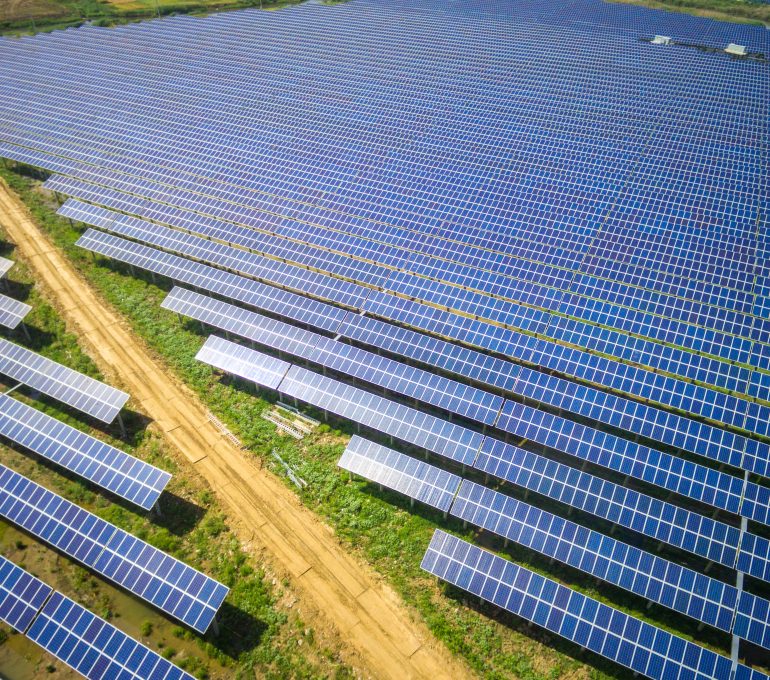
Sustainable Aviation Fuel
We believe that Sustainable Aviation Fuel (SAF) is going to be the most efficient way to decarbonise New Zealand’s critical aviation fuel supply chain. Channel is well-placed to play a critical role in the development of a SAF industry in New Zealand.
SAF, as a drop-in fuel (meaning it utilises existing infrastructure – existing ships, storage tanks, pipelines, airports) does not require any changes to the tens of thousands of aircraft currently in use, so it is also the lowest cost option for the future.
Channel is exploring ways we can partner with our customers to support the decarbonisation of Aviation fuels supply chain and we are excited about the future opportunities for our business.
Battery and hydrogen options are only feasible as an option for short-haul, and advances in new aircraft development takes decade to reach market.
SAF, as a drop-in fuel (meaning it utilises existing infrastructure – existing ships, storage tanks, pipelines, airports) does not require any changes to the tens of thousands of aircraft currently in use, so it is also the lowest cost option for the future.

Renewable fuels
Channel Infrastructure is working alongside our customers to explore how we can support the import and supply of biofuels to New Zealand. As BioFuels become increasingly common in the fuels supply chain, we will have a critical role to play, given the available tank storage capacity that we have at Marsden Point, our proximity to the Auckland market, and management of the pipeline to Auckland – which remains the lowest carbon emission option for delivering fuel to New Zealand’s largest market at one tenth of the emissions of the equivalent transport by road.
Green hydrogen
We see significant opportunity for repurposing at our Marsden Point site, with less than half of the land required for terminal operations. Hydrogen presents another exciting opportunity and Channel Infrastructure has partnered with Fortescue Future Industries (FFI) to study the feasibility of the production, storage, distribution, and export of industrial-scale green hydrogen at Marsden Point. This opportunity is at the second stage of assessment, and we are now working with our partners to assess the commercial model for Channel.
